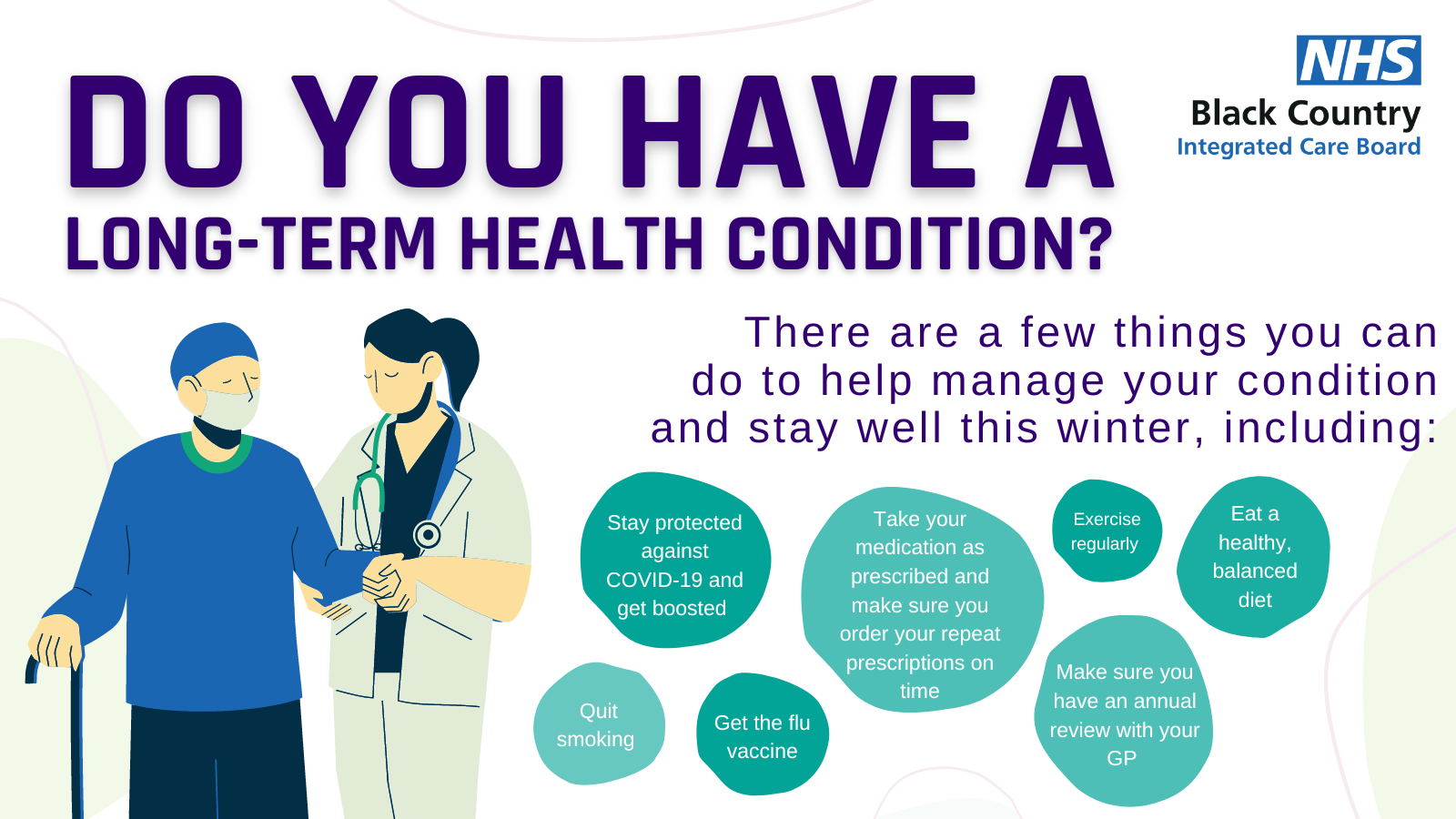Long-term conditions, or chronic diseases, are conditions for which there is currently no cure, and which are managed with medications and other treatments.
In addition to disease specific symptoms, they can cause invisible symptoms such as pain, fatigue, and mood disorders.
Everyone’s experience of living with a long-term condition is different, but there are a few things you can do to help manage your condition and stay well this winter:
- Get a flu vaccine
The best way to protect yourself and your family is to get the flu jab. If you are in a risk group, are pregnant or aged 50 or over, it’s really important to get vaccinated ahead of winter.
- Stay protected against COVID-19
Getting the vaccine is the best way to prevent the likelihood of becoming seriously unwell from COVID-19, and is all the more important it you have a weakened immune system in helping to ensure you are protected.
- Regular reviews
If you have a long-term condition, you should also have regular reviews of your condition and treatment. These are usually carried out by a GP, but sometimes may be done by your specialist team. Reviews should be carried out at least once a year and it is important to keep on top of this to ensure the condition is managed appropriately.
- Keep on top of medication
Make sure you have enough medication to last you and take it every day as prescribed. It’s important that you plan ahead and book any routine appointments with your practice in plenty of time.
- Keep warm
Cold weather can trigger many long-term conditions and even a small change in temperature may affect you. As we approach the winter months, it’s more important to eat well and keep warm. One of the many ways to do this is to keep active and have regular hot drinks and meals.
- Exercise
If you have a chronic condition, being more active will help you to manage the condition more effectively and stop progression, which can lead on to other benefits such as lower medication use, less pain, and increased overall quality of life.
- Healthy eating
Eating a healthy, balanced diet is an important part of maintaining good health, and can help you feel your best. Together with exercise, eating a healthy diet in the right proportions can also help you lose weight, lower your cholesterol levels and blood pressure and decrease your risk of type 2 diabetes.
- Quit smoking
Smoking increases your risk of developing more than 50 serious health conditions. It damages your heart, blood circulation and lungs, and can also worsen or prolong the symptoms of respiratory conditions such as asthma, or respiratory tract infections such as the common cold.
- Self care
Winter can make long-term conditions worse. If you feel unwell, it’s important to seek medical attention as soon you can. Use over-the-counter medicines and pharmacy as your first point of call. Pharmacists are fully trained to advise you on the best course of action.
There are also several support services that can make living with a long term condition easier and help you deal with your symptoms on a day-to-day basis. Please contact your practice for more information.

